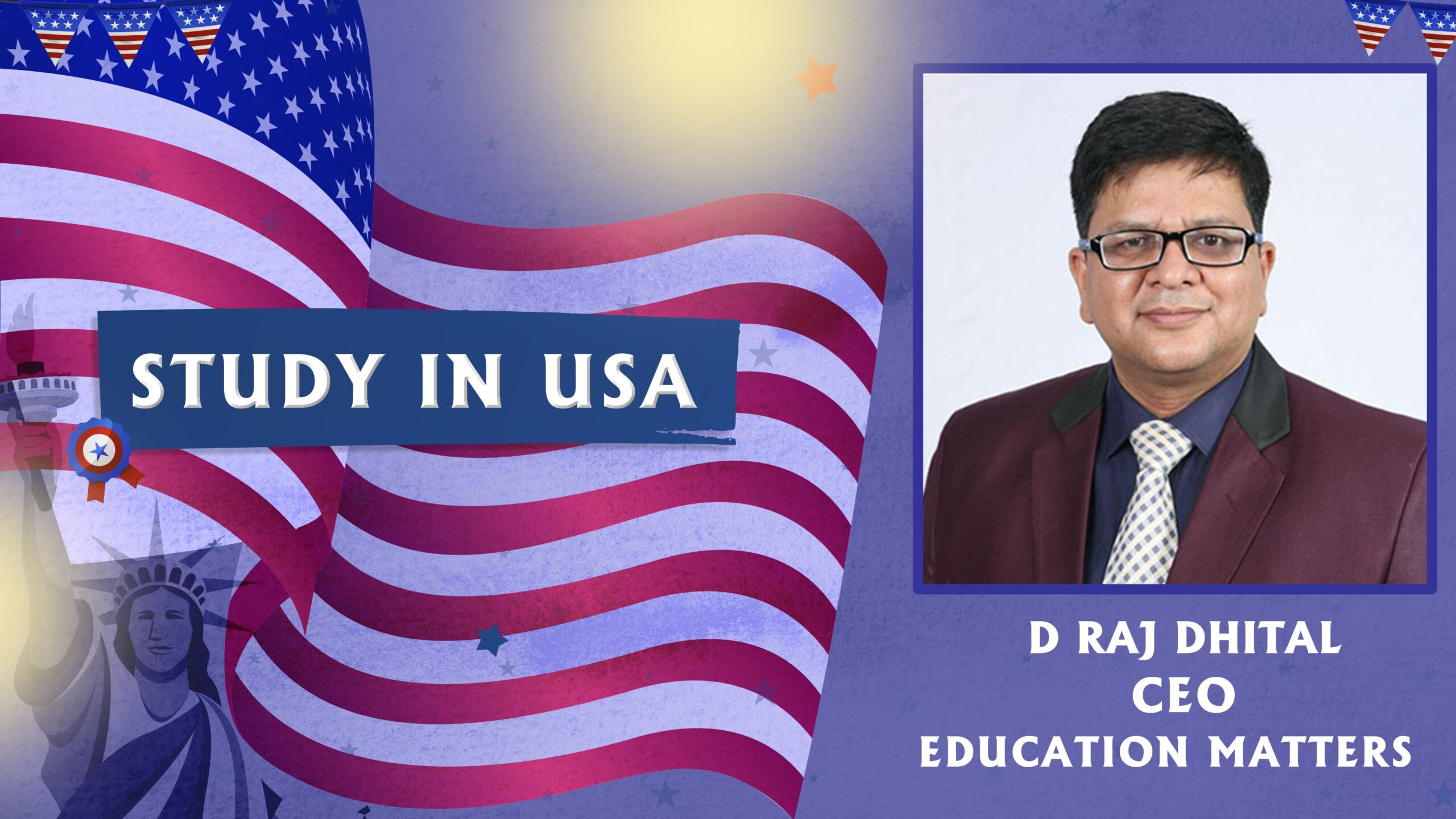
CEO of Education Matters, D Raj Dhital leads Nepal’s premier overseas education consultancy, prioritizing honesty, professionalism, and student satisfaction. Under his guidance, the consultancy excels in providing quality educational services globally, assisting students in prestigious countries. D Raj Dhital’s commitment to minimizing stress and maximizing success is evident through Education Matters’ enduring efforts and dedication to students’ academic pursuits.

Reporter: Today, we are joined by CEO of Education Matters D Raj Dhital, an expert in the field of international education, to shed light on the opportunities and challenges for Nepalese students pursuing higher education in the United States. Can you tell us about the academic allure that draws thousands of students to America each year?
D Raj Dhital: Absolutely. The United States has long been a beacon for quality education and abundant opportunities. One major factor attracting Nepalese students is the availability of scholarships in American universities, coupled with comparatively affordable tuition fees when compared to other popular destinations like Canada and Australia.
Reporter: It’s intriguing to hear about the scholarship opportunities. Could you elaborate on how these scholarships are granted to Nepalese students?
D Raj Dhital: Certainly. American universities often extend scholarships to Nepalese students based on their academic performance in class 12 and English language proficiency test scores. The emphasis is not solely on grades; consistent study habits and timely submission of assignments can also open doors to these opportunities.
Reporter: Time management seems to be a key factor in the American education system. How does this play into the overall academic experience for students?
D Raj Dhital: The American education system is known for its flexibility, allowing students to effectively balance study and work. Success is within reach for those who are self-confident, clear about their goals, and maintain regular attendance and timely assignments. The quality and experimental teaching methods further contribute to excellent academic performance, providing a passport to opportunities worldwide upon graduation.
Reporter: Visas are often a concern for international students. What can you share about the visa process for those studying in the United States?
D Raj Dhital: The visa process is not as stringent for hardworking and meritorious students with good academic progress. America values the contributions of students to its education system, and those with a commendable academic record find it easier to secure a visa. The country stands out globally for the quality of education it offers, making it an attractive destination for ambitious students.
Reporter: Last year, nearly 4,000 students from Nepal obtained a No Objection Letter to study in the United States. Can you provide insight into America’s standing as an educational destination?
D Raj Dhital: Indeed, America ranks fifth among the preferred destinations for Nepalese students, and it holds this position among 70 countries. With over 4,000 educational institutions, including prestigious names like MIT, Harvard, and Stanford, the US education system is student-centered and emphasizes exploration and research.
Reporter: Financial considerations are always crucial. Could you touch upon the scholarship and financial aid options available for Nepalese students in the United States?
D Raj Dhital: Absolutely. Nepalese students have access to various financial aid options, including Fulbright Scholarships, Merit-Based Scholarships, and Excellence-Based Scholarships. Tuition costs vary across institutions, ranging from $15,000 to $40,000 per year. These opportunities significantly alleviate the financial burden on students, making American education more accessible.
Reporter: Thank you, D Raj Dhital, for providing such comprehensive insights into the educational landscape in the United States. This information will undoubtedly be valuable for aspiring students and their families.
D Raj Dhital: My pleasure. I hope this sheds light on the rich educational prospects awaiting Nepalese students in the United States.
Write your comment